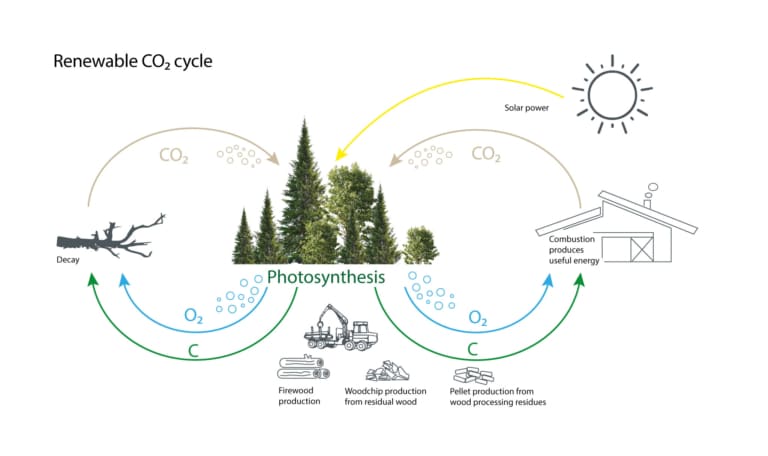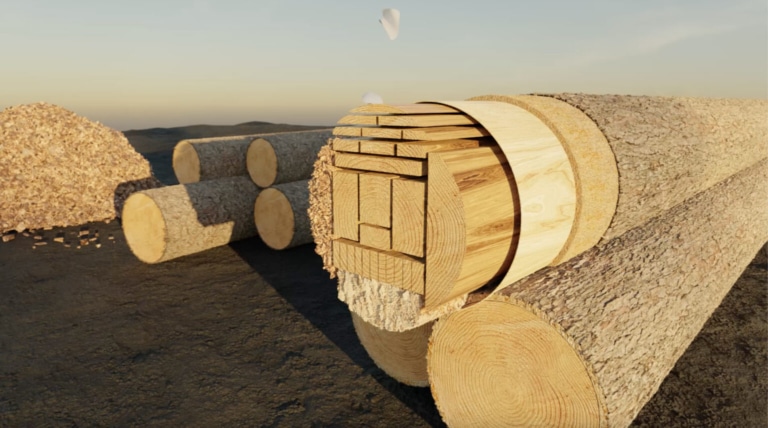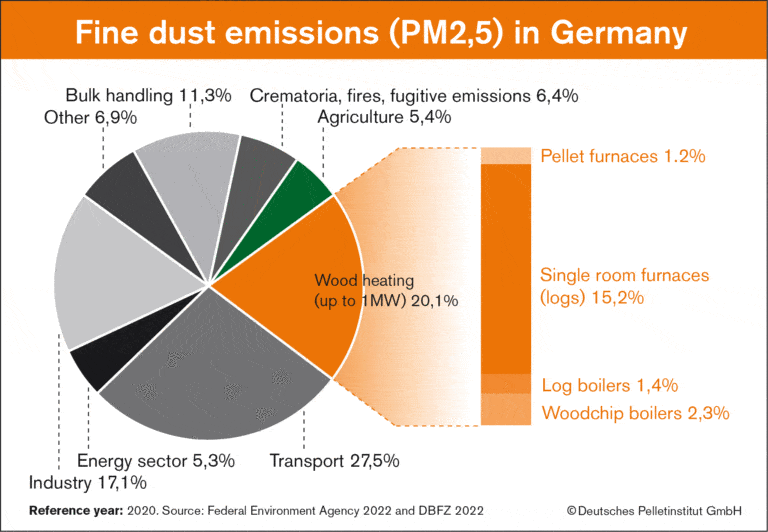Biomass: CO₂-neutral & efficient
As oil and gas heating declines, more and more people are turning to renewable energy sources. Biomass heating systems offer particular independence and flexibility. For many years, Hargassner has been building reliable and efficient biomass heating systems that generate heat for a climate-friendly future.
But the question remains: “Can biomass heating really be CO₂ neutral?”

Biomass: Net-zero CO₂ emissions
Biomass is an organic material based on carbon compounds. When this organic material is burned, CO₂ is inevitably released. However, unlike fossil fuels, biomass, such as wood, is a rapidly renewable raw material that binds the very CO₂ during its growth and is later released during combustion.
Therefore, although heating with biomass is not carbon dioxide-free, no additional carbon dioxide is released into the atmosphere that was not previously bound. The CO₂ balance of the biomass cycle is therefore zero. Heating with biomass is therefore considered CO₂ neutral and is one of the best alternatives to gas and oil heating.

Where does the wood come from?
But isn’t it nonsensical to just burn precious wood? Of course, but that is not what happens with CO₂-neutral heating with biomass. Instead, it makes extensive use of trees that would otherwise be felled for other purposes. This is because wood chips and pellets are largely made from the waste produced in sawmills, for example, for lumber production.
If this wood waste were left to rot, the CO₂ stored in it would be released in the same way as if it were burned.

Advantages in production & transport
As with any renewable or fossil energy source, greenhouse gases are produced during production and transport. However, heating with biomass has two advantages: Firstly, the energy required to produce pellets, for example, is much lower than that required to produce gas or fuel oil. The energy balance of heating oil production, for example, is five times worse than that of pellets made from dry sawdust.
On the other hand, Europe has an extensive supply of firewood due to its large forest stocks. This means that the heating fuels—be they wood logs, pellets, or wood chips—can be obtained and sourced regionally. This saves transport distances and strengthens the local economy. Additional security and independence in the procurement of heating fuels are provided by hybrid heating, which combines different energy sources.

Fine dust source biomass heating?
Its CO₂ neutrality makes biomass a climate-friendly energy source – but what about air quality other than greenhouse gases, such as fine dust? Indeed, old wood boilers are a significant source of particulate pollution – but that is a thing of the past.
Today’s heating systems are highly efficient in their combustion process and technical design and emit very little fine dust. With a modern biomass boiler from Hargassner, heating is not only CO₂ neutral but also extremely low in particulate matter.
Take a look at our extensive product range and switch to CO₂ neutral heating!

